
HIGH COURT FEBRUARY 2025 WEEKLY ROUNDUP | Stories on Delhi Riots; Bar Association Elections; Fake Anti-Cancer Drug; NOVARTIS Trade Mark; and more
A quick legal roundup to cover important stories from all High Courts this week.

A quick legal roundup to cover important stories from all High Courts this week.

By the Scheduled Castes and Scheduled Tribes Orders (Amendment) Act, 1976, the Schedule—IX is amended by deleting the original Entry at S.No.13 as ‘Halba or Halbi’ and inserting Entry at S.No.19 as ‘Halba, Halbi’ for the State of Maharashtra, pursuant to the States Reorganization Act, 1956.
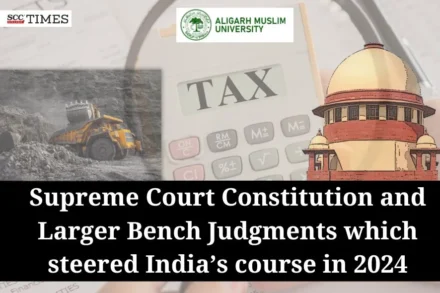
The Supreme Court’s 2024 decisions have marked a significant turning point in the country’s legal and constitutional framework. Key rulings delivered by Constitutional Benches on Electoral bonds, private property, royalty as tax, AMU’s minority status, sub-classification within reserved categories, etc. have left an impact on fundamental rights, political transparency and tax regime, shaping India’s socio-political landscape, influencing both public policy and the broader democratic process.
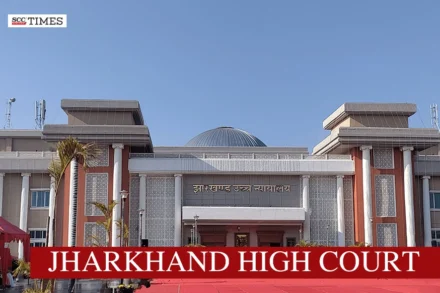
In the present case, the petitioner has helped one lady against the allegation of incumbent sitting Chief Minister, which clearly suggests that maliciously the case was registered against the petitioner and the investigation was also made with pre-occupied mind.
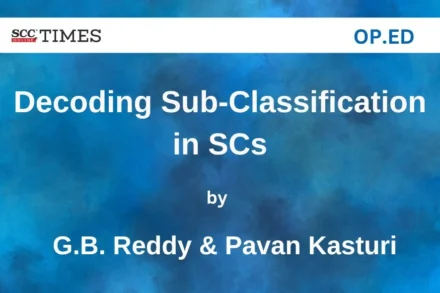
by G.B. Reddy* and Pavan Kasturi**
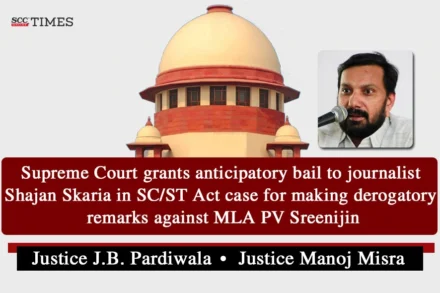
“All insults or intimidations to a member of the Scheduled Caste or Scheduled Tribe will not amount to an offence under the Act, 1989 unless such insult or intimidation is on the ground that the victim belongs to Scheduled Caste or Scheduled Tribe.”
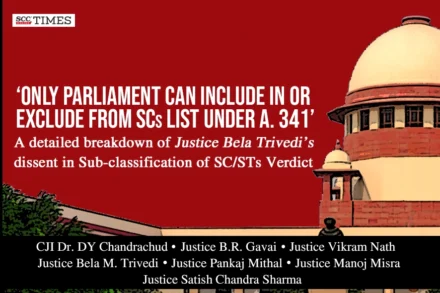
“State has neither executive nor legislative power to sub-classify or sub-divide or re-group the castes, races or tribes specified as the “Scheduled Castes” in the Presidential List notified under Article 341. Under the guise of providing reservation or under the pretext of taking affirmative action for the weaker of the weakest sections of the society, the State cannot vary, nor tinker the Presidential List.”
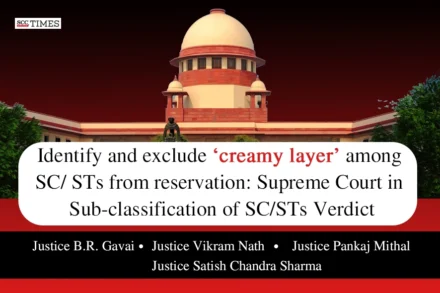
“The criteria for exclusion of the creamy layer from the SCs and STs for the purpose of affirmative action could be different from the criteria as applicable to the Other Backward Classes.”
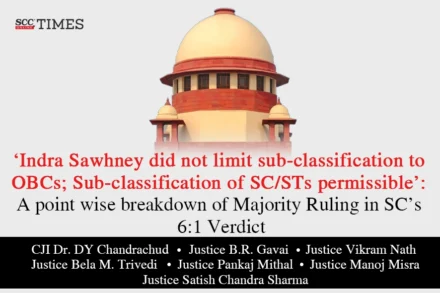
“Article 341 does not create an integrated homogenous class. Sub-classification within the Scheduled Castes does not violate Article 341(2) because the castes are not per se included in or excluded from the List.”
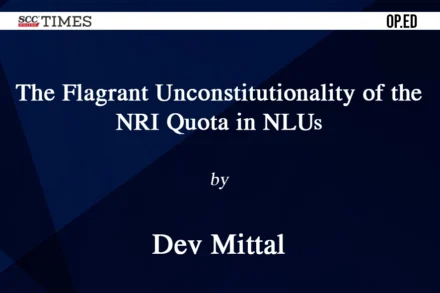
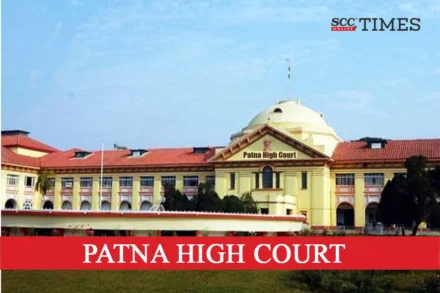
The Court noted that after the collection of data for Caste survey, there was a frog leap into the amendment enhancing the reservations beyond 50%, which was on proportionate representation in the services of the State and educational institutions, which was clearly not permissible under Articles 15(4) and 16(4).

The Bihar Reservation (for Scheduled Castes, Scheduled Tribes, and Other Back Classes) (Amendment) Act, 2023, and the Bihar (in admission in educational institutions) Reservation (Amendment) Act, 2023 were challenged for breaching the 50% limit in reservation.
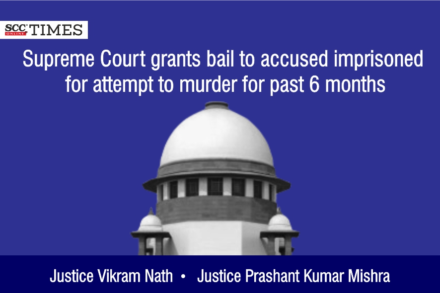
Supreme Court directed that the accused be released on bail on such terms and conditions as may be imposed by the Trial Court in connection with FIR.
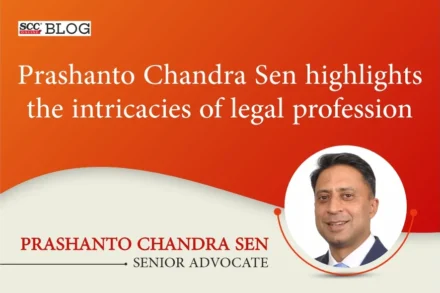
Interviewed by Anish Mishra
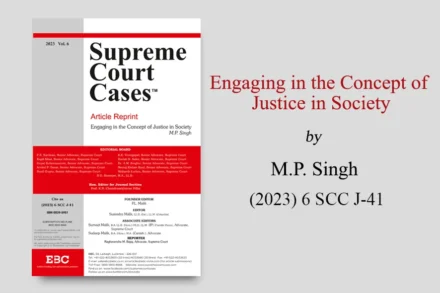
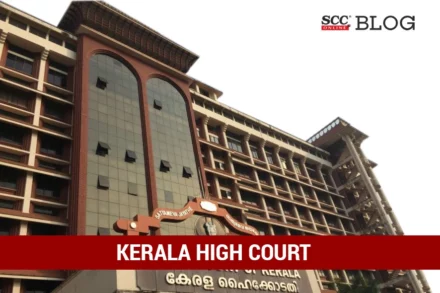
Kerala High Court pointed out that KIRTADS proceeded on general statements that generally in case of inter-caste marriage, the socialization process of the offspring of such couples is more attached to the high ranked father.
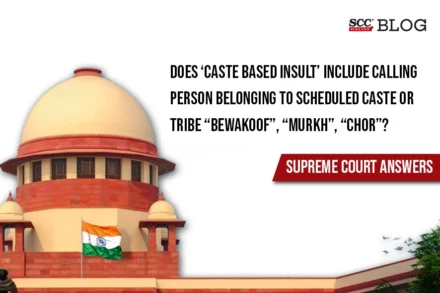
The Supreme Court observed that it is desirable that before an accused is subjected to a trial for alleged commission of offence under section 3(1)(x), the utterances made by him in any place within public view are outlined, if not in the F.I.R., but at least in the charge-sheet so as to enable the court to ascertain whether the charge sheet makes out a case of an offence.
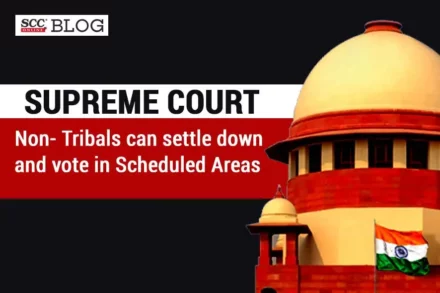
Supreme Court held that the power of the Governor under Clause 5 of the Fifth Schedule does not supersede the Fundamental Rights under Part III of the Constitution of India.
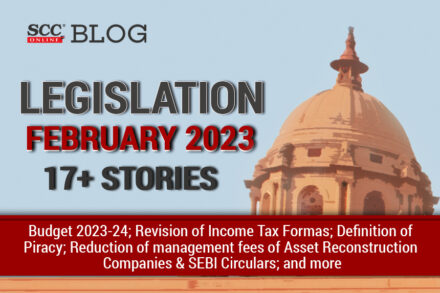
UNION CABINET Union Budget 2023-24 Highlights: What’s in bag for middle-class? On 1-02-2023, the Union Finance Minister, Nirmala Sitharaman announced the Union
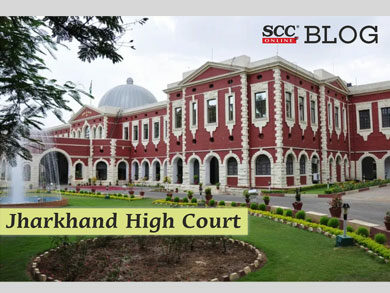
Jharkhand High Court refused to disturb the findings of Trial Court and Appellate Court in a title suit for succession by an adopted son, whose adoption was questioned on the ground of customary provisions of Santhals.